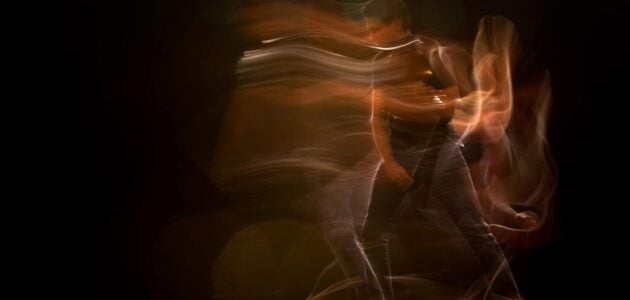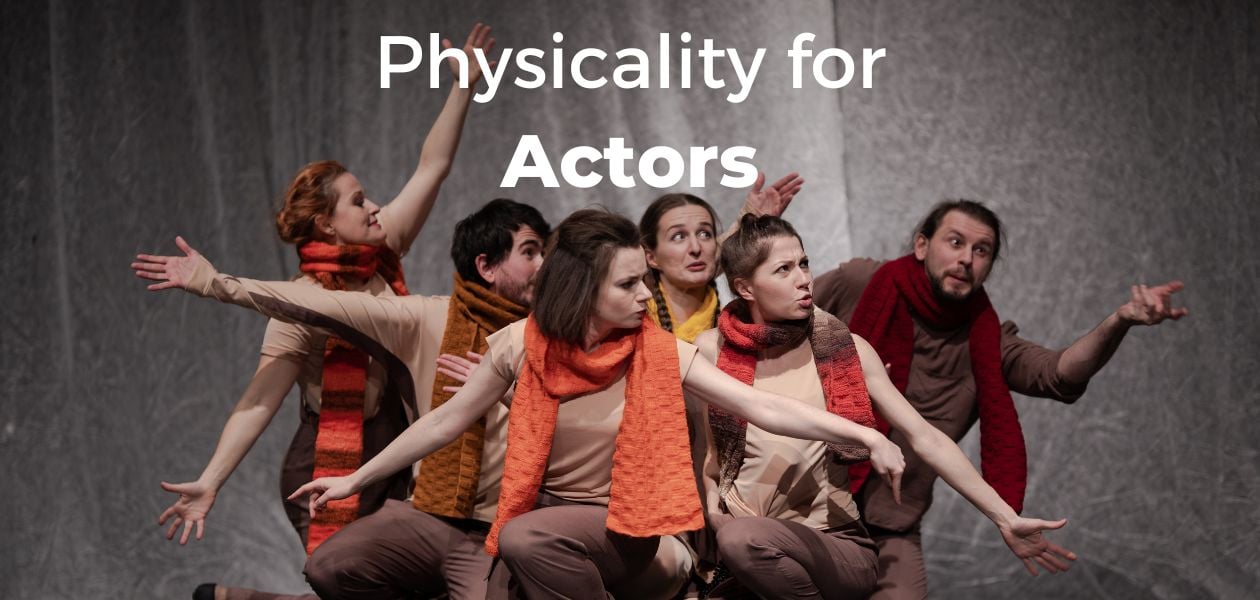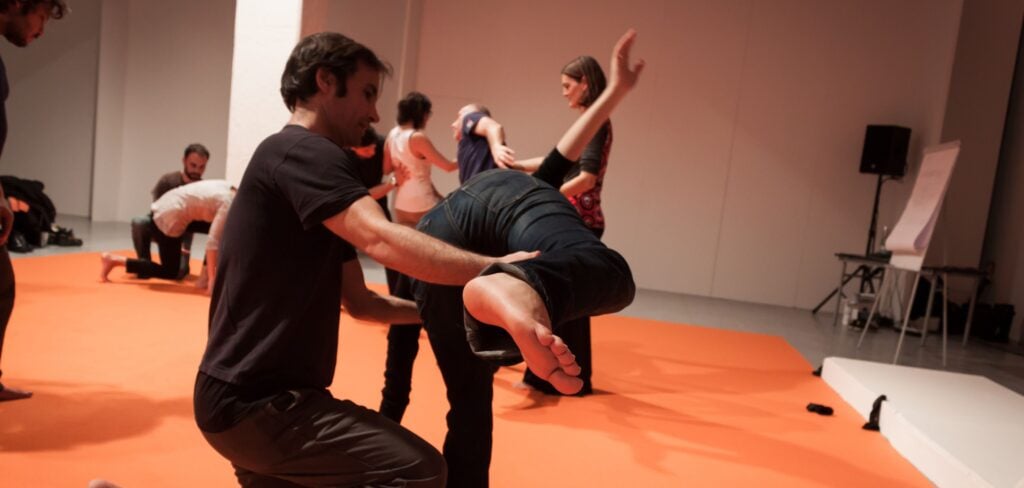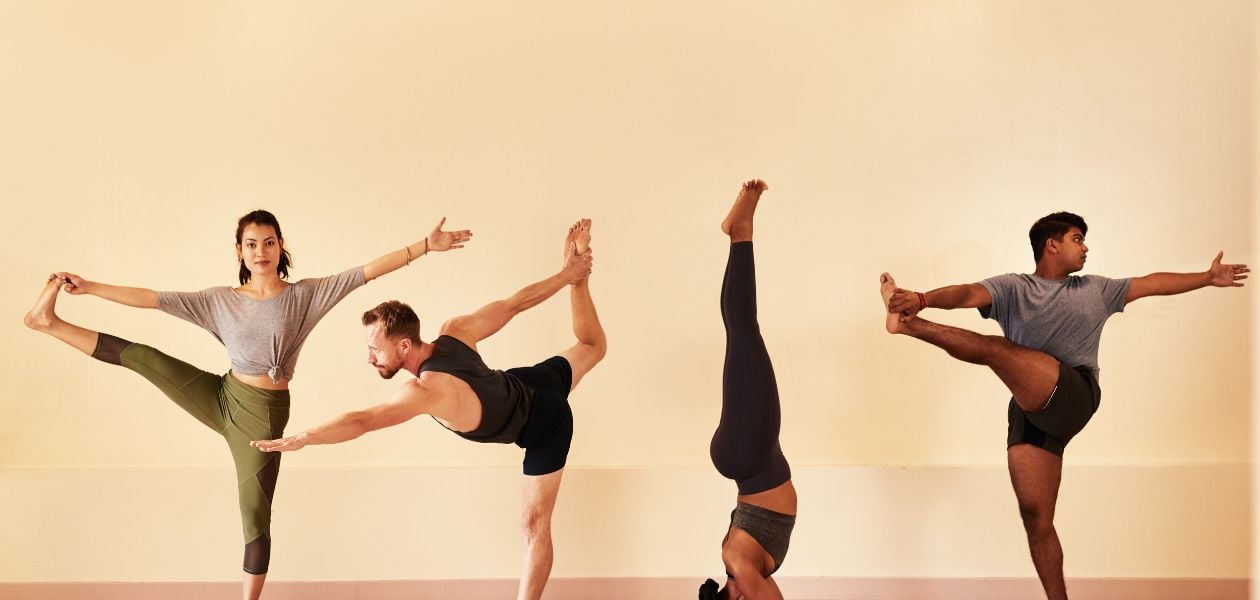
Physicality for the Actor
Let’s get physical! On screen and off…
One of the most underrated and magical gifts of lockdown has been the groovy, livestream dance sessions provided by the divine and oh-so-kind, Betty Grumble. Betty Grumble is a gem of a human being. She has been a source of positivity and light in these dark times, providing us with a consistent flow of dreamy disco-boogies and a Spotify playlist – Grumble Boogie Loves You – that works as the best pick-me-up from the lowest and grumbliest of moods. Her fabulous wardrobe choices are enough to put a smile on your face, but after one session, she gets those endorphins really pumping and it’s impossible to be in a bad mood after going down to funky-town.
Betty’s moves are simple and focus on making us feel good, which is reflected in the cycle of affirmations that she rejoices:
Good Body. Love you Body. Thank you Body.
Why is Physicality Important for the Actor?
As actors, we can be so hard on ourselves and sometimes, on our physical appearance. It’s understandable when there is an element of our job that is to be scrutinised over how we look and how we present on screen. Very few professions in this world are so focused on physicality and appearance as the entertainment industry is, where you can lose a job by simply not having ‘the right look’. It’s hard not to take it personally sometimes, which is why Betty Grumble’s message is so important. Even if you think you are young and invincible it’s important to remember; you only have one body, you have to look after it. Be kind to it, be grateful for it. As an actor, it is one of the most important tools we have to work with.
So now, in a time where our physicality and everyday movement has become so limited and it’s easier to sit on the couch with your mates Ben & Jerry than go to the gym safely, we may need help reconnecting to our bodies and remembering how useful our physical vehicle can be. That is the first important step to take in thinking about how we use our bodies to translate a set of sides onto the screen and tell the audience a story.
When we pick up a script, the physicality of the character is generally not the first thing we think about. There is so much to focus on and percolate over in script analysis, that sometimes physicality falls a little further down the list than it should. We all have different ways of connecting to character, or a specific trigger we use to ‘get into the scene’, but sometimes the most simple of physical actions can be enough to launch you into the moment.
For those with foundations in theatre training and especially a background in dance, physicality in performing becomes second nature like a finely tuned machine. But on screen, it can also be tricky to find the balance. Screen is such an intimate medium that magnifies the slightest of movement and sometimes, for theatre actors it can take a little adjusting when making the transition from stage to screen.

Don’t get me wrong, theatre training and experience on stage is one of the most important things for an actor. There is often a debate around whether you need it or not in order to be a successful actor. Time and time again, I have heard casting say they can tell on the spot the difference between a theatre trained actor and a screen trained actor and often only see actors with theatre school on their resume (of course there are always exceptions to the rule).
But, to all you theatre kids, how many times have you heard a screen coach tell you that you’re too big, too loud, etc etc. and felt immediately that you need to make yourself into an itsy-bitsy-teeny-weeny version of yourself and that is no fun for anyone? There has to be a balance, right?
So, then the mind games begin, and just like that you are sucked into the vortex of overthinking and thinking about all of the wrong things. We know the vicious cycle.

Read more: Physical Warm Up
How to use Physicality for Auditions:
Actors are notorious over thinkers, to the point where we can get so stuck in our thought patterns, it becomes almost debilitating. We have more conversations with the characters in our heads than we do with the characters in the scene. Physicality is the quickest escape route out of your head and the way to break free of the mental mish-mash.
So here are some tricks to get your body business to help you in the scene when auditioning:
Once Upon a Time
Some would argue that ‘Once Upon a Time..’ is the most important part of the story. The choices you make in the beginning of the scene informs the audience and guides you as the actor through the rest of the performance. Some people use ‘the moment before’, but ‘Once Upon a Time’ works nicely as a reminder that first and foremost we are storytellers, and the story always comes first.
If you allow that choice to be based in something physical such as:
- reacting directly to the environment
- a particular posture that makes you remember to stay connected to your body
- perhaps there is a secret that the character is trying to hide
These are all ways to get us to connect to our body and get out of our heads. Even something as simple as touching a piece of jewellery you are wearing and allowing that to be meaningful in the scene can be an easy way to get connected in the midst of audition nerves.
Props
Ah yes, to prop or not to prop, that is the question. The general rule of thumb that is accepted by casting is that if it is something that you would naturally have on your person, like a handbag or keys etc, then use it. Don’t turn up to an audition for a horror movie brandishing a butcher’s knife – it will never end well.
Non-verbal cues are the most powerful ways to get the message across and having a simple object in your hand allows you to send subtle yet strong messages in the scene and help you find physical life in your character. We never want to just be a ‘head in a box’ on screen.
Authenticity
The wonderful thing (and sometimes also the most frustrating) about the job of acting is there is no exact science to having a successful career and what works for some won’t work for others. The word authenticity gets thrown around a lot these days, but there is a reason for it, in that it is important to stay genuine to you and the type of actor you are. It can be difficult to quantify what that means without resorting to threadbare sayings like, ‘be yourself, everyone else is taken’… but it’s true. Your essence and who you are is what your agent is trying to sell to casting, and they want the real deal.

For some, tripping the physicality switch is just the trick you need to pull yourself out of your head and into the scene. And for that we say…
Thank you, Body.

Leave a Reply